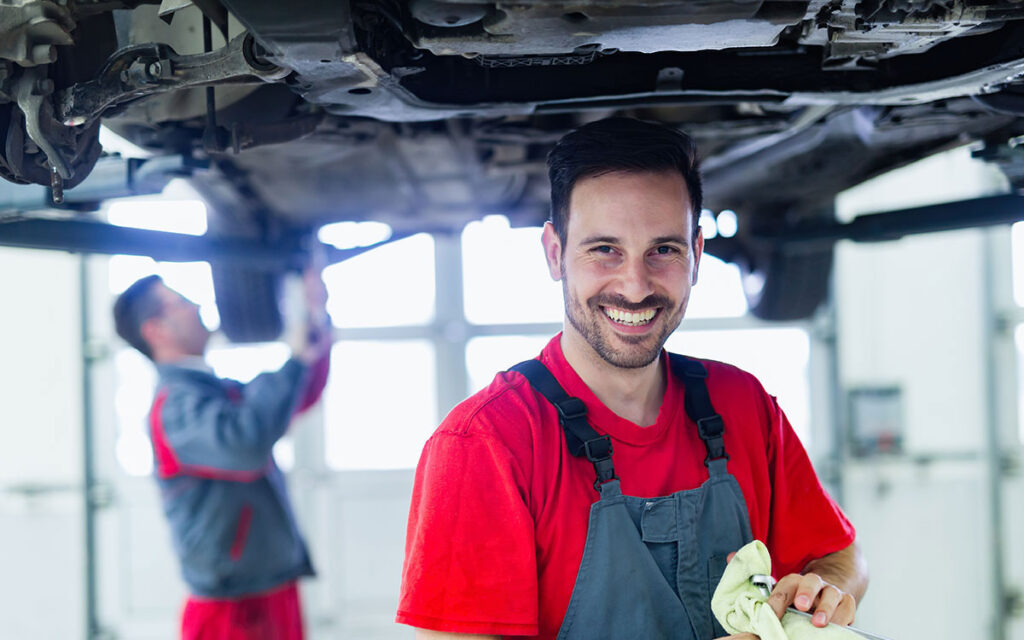
Everytime you hear someone say, “Recently, my brakes started grinding, but I thought I could wait,” you know how the story ends-and it’s never good. It’s one of those parts of your car that never waits for you to get some free time for maintenance. Those weird ominous squeals, grinding noises, or in some cases a warning light.
You can expect your vehicle’s brake pads to last anywhere between 25,000 to 70,000 miles, purely based on your driving habits and the equipment you use on the road.
First things first, you need some tell tale signs only then you can find out how to keep your brakes in good shape-and your mind at ease.
The most common and clear sign of worn brake pads or rotors. This annoying grinding sound means the pads are most likely gone, and the metal backing is scraping against the rotor,(metal against metal? You know what can happen).
When you stop the car, you’ll probably feel a shaking or vibration. This is from uneven rotors or improper alignment. This is another sign that something’s wrong with your brakes.
Those squealing sounds are your brake pads, constantly screaming for a replacement. We will never suggest you ignore this noise. You could get metal-on-metal contact, which would eventually reduce the performance and how well it went on brakes.
If your brakes are screaming and making loud noises like grinding or squealing, your car is in trouble. These noises come from worn pads, damaged rotors, or loose components that could worsen over time.
Vibration is never a good sign. It probably means your rotors are either warped or your pads aren’t worn properly. Eventually compromising how you control your vehicle and your safety, also affects how smoothly you stop.
It’s your car telling you something’s wrong and needs a check. Low brake fluid, worn brake pads, or even a faulty brake system attracts your attention with a warning light. It could compromise your stopping power and make you unsafe for highway driving.
Burning smell is never a good sign and not something you should ignore. It’s a sign that your brake pads are overheating or your caliper is stuck. It can cause brake fade, where your brakes can’t stop as well as they used to.
There is definitely a chance. If you have uneven brake pad wear, a stuck caliper, or alignment problems. A car with this imbalance can be hard to control, so sudden stops can cause a serious accident.
Yes, because your brake pads are worn or your braking system isn’t producing enough pressure. It puts extra strain on other braking components in emergencies.
Having thin brake pads, less than 14 inches, makes braking harder. Insufficient friction increases stopping distances and damage to rotors.
There must be air in the brake lines or a problem with the master cylinder in your vehicle. You can’t stop your car safely this way because the braking pressure goes down.
Like we just talked about a burning smell, overheating is quite the same. The brakes can overheat if you brake for a long time or hard. You are making your brake pads lose friction and reducing the stopping power of your vehicle. When your brakes fade, your car won’t respond as fast.
What are the longest lasting brakes?
Ceramic brake pads and high-carbon brake discs last the longest because they’re durable and many vehicle owners consider this reliable. With ceramic pads, there’s less dust so less wear and tear and you can also handle higher temperatures, whereas with high-carbon discs, there’s less warping. Your vehicle is going to be more stable and you can get the most out of your brakes if you use these materials and maintain them regularly.
How many km before changing brakes?
It’s time for new brake pads every 40,000 to 70,000 miles, or 64,000 to 112,000 kilometers. Again depends on how you treat your brakes. These ranges can be affected by driving habits, road conditions, and the type of brake pads on your car. Also, how often you go for a routine check. You need to keep an eye and make sure you replace them on time with regular inspections.
What type of brakes are best?
Some drivers suggested that it’s better to have semi-metallic brakes on heavier vehicles or high-performance cars. There’s an ideal braking system for every driver, every vehicle, and every maintenance routine. If you ignore pad wear or wait too long to replace brakes, you could end up in an unsafe condition, as worn brakes make it harder to stop and cost you more money to fix.
Do brakes go bad with age?
It’s true that brakes wear out over time. But a lot of stuff like bad roads, rough terrains can make them deteriorate, so age is not the only factor. It’s possible in this scenario for brake rotors to rust or warp, damage, and stop working, so it’ll be harder to stop. Most likely when you need to. If your brake pedal is spongy or unresponsive, it’s probably because of aging parts, like worn pads or air in the lines. In this case, yes they go bad with age.
Do brake pads expire?
Brake pads don’t have a set expiration date, in most cases. It can degrade over time, especially if exposed to moisture or extreme temperatures like in summers. Even if unused, the material can harden or lose effectiveness. For your vehicle’s safety, you need a regular inspection of your brake pads and rotors. Brake fluid should get clean and at proper levels. If you notice wear or bad performance, it’s time to replace your brake pads to maintain best braking power.
Stay safe on the road with DriveTime Automotive‘s expert brake repair services in Salem, Oregon. Whether it’s grinding noises, vibration, or worn pads, trust us to get your brakes back in perfect shape. Call us now to book your appointment!